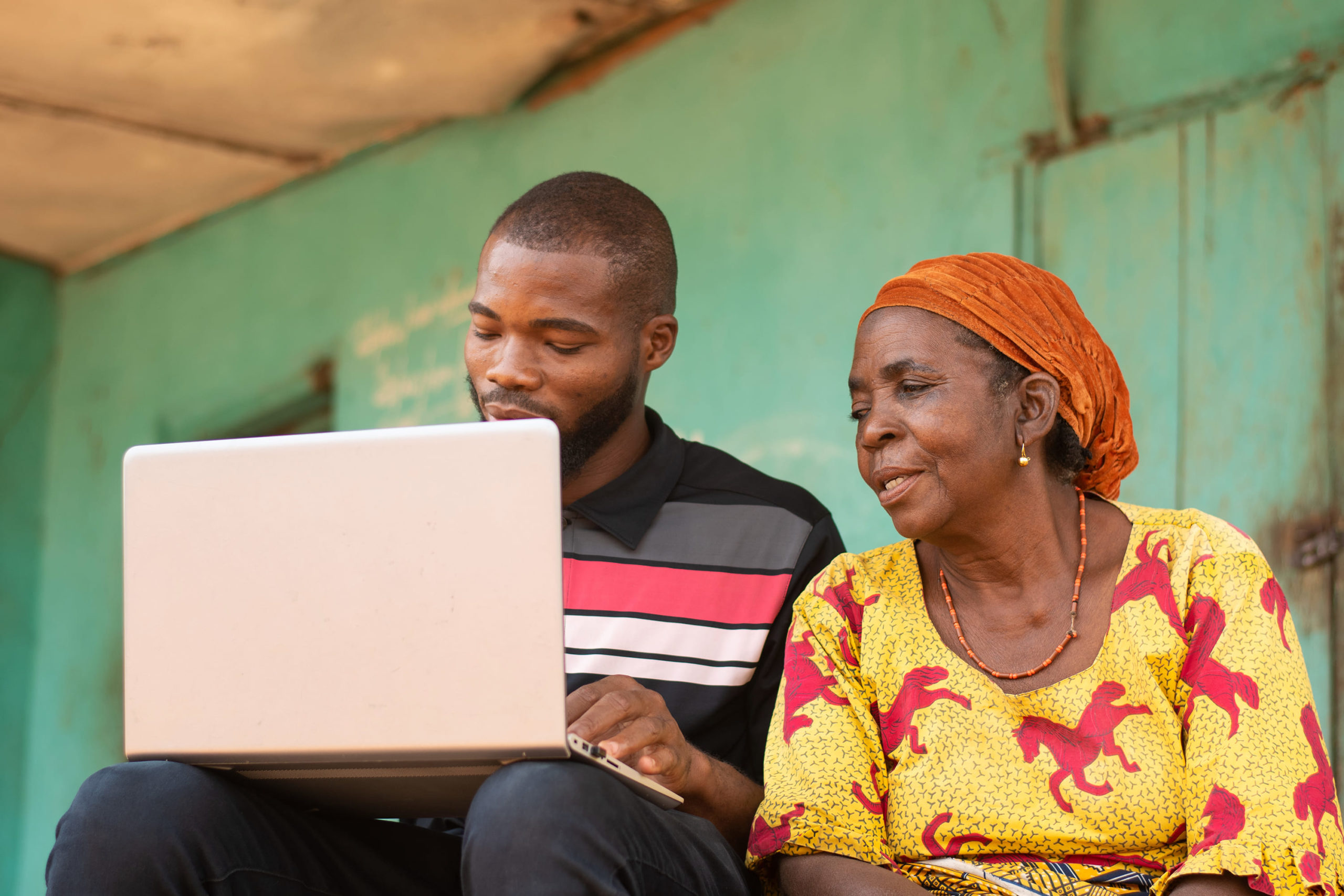Information asymmetry on the part of job seekers or applicants and employers may lead to skills mismatches that increase gender inequality in labour markets. Can online labour markets close gender gaps in employment by smoothing information frictions? And to what extent does providing more information to both applicants and firms lead to improved matching and reduced gender gaps in employment? We answer these questions using evidence from the largest online job platform in Nigeria. We study how providing information on matching patterns by gender, and diversity information encouraging applications from women affects the gender gap in applications, on the applicant side, and the gender gap in hiring, on the employer side. The rationale behind our study is that providing information to misinformed agents, that either corrects their misinformation, or reduces uncertainty involved in decision-making with information asymmetry is a low-cost way to reduce gender gaps stemming from information problems in online labour markets. Additionally, by providing information to both the supply and demand sides of the labour market, we can better understand the key sources of information frictions that may contribute to gender inequality in online labour markets. We provide evidence that both job seekers and hiring managers change their behaviour when they receive new information, with significant gender differences in the effects of information on matching and hiring behaviour. The responses lead to significant improvements in women’s labour market outcomes, with little change for men’s outcomes, leading to a reduction in the gender gap in employment in the labour market.
Our project analyses data from an online labour market platform in one of Africa’s largest economies, Nigeria, with unique access to information on applicant profiles and search behaviour, employers and hiring decisions. The job platform, Jobberman, is the largest online job market in Nigeria and has a presence in Ghana. Using new data over 7 years between 2014-2020 and more than 2 million applicant-firm matches from Jobberman in Nigeria, we study matching and the potential role of gender in firm hiring and labour market frictions with initial results from a pilot study documented in Archibong et al. (2022). We find significant differences in the matching behaviour of applicants by gender across different industries and job levels. Women tend to be more qualified, by education, for the jobs they apply to than men, but less qualified, by years of experience. Women apply to a lower number of jobs and lower-level jobs than men, even when they are more educated on average for the position. Women are also less likely to be hired for a position than similarly qualified and educated male counterparts. To understand the mechanisms driving the results from the descriptive data and examine the effects of information interventions in reducing gender gaps in applications and hiring on online labour markets, we will conduct a randomized control trial (RCT) with 3 treatment arms outlined in Section 2. The main question of interest is as follows: “Can low-cost information interventions help reduce gender gaps in applications and hiring in online labour markets?” Given the high levels of unemployment, and youth unemployment in particular, in Africa, significant gender gaps in employment outcomes, and the increased ubiquity of access to ICT, studying the online labour market outcomes of women can provide significant insights into effective policy to improve employment outcomes broadly.
